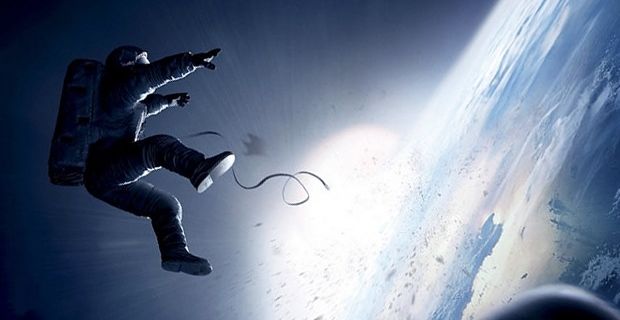
“It suddenly struck me that that tiny pea, pretty and blue, was the Earth. I put up my thumb and shut one eye, and my thumb blotted out the planet Earth. I didn’t feel like a giant. I felt very, very small.”
Of the many reflections by Neil Armstrong on the groundbreaking mission to the moon in 1969, this quote is one of my favourites. The moon landing is often spoken of in grandiose terms, with people praising the revolutionary scientific and engineering advances made to get a human being onto our only satellite. The event stoked pride, solidarity, and a shared sense of wonder in humanity, as for the first time we were able to look to the skies and share in the experience of seeing what lay beyond them. In these words however, Armstrong exposes a deeper meaning to space travel. To journey into the great beyond is a privilege very few of us will have in this life, yet it’s perhaps one of the most acutely human experiences anyone could hope for. Floating in a vast, consuming darkness, one becomes more vulnerable and self-aware than ever and the longing for the sanctity of Earth becomes very strong. This is the impetus for Alfonso Cuarón’s magnificent Gravity, the depiction of an imperilled astronaut’s struggle to get back home, and easily one of the most poetic, beautiful, and affecting films you’ll ever see.
Dr. Ryan Stone (Sandra Bullock) is a bio-engineer on her first space shuttle mission. She and fellow astronauts Kowalski (George Clooney) and Shariff (Paul Sharma) are working on the Hubble Space Telescope when Houston informs them that a Russian satellite has been blown up and cast a debris field flying in their direction. Unable to get back to the shuttle before the debris hits, the astronauts are hurtled loose from their tethers and lose communication with Houston.
Films about space travel, even journeys to somewhere as relatively close as the moon, tend to have a certain romanticism. Because prolonged travel in space is a mighty dream that remains out of our reach for now, filmmakers can be bold and brilliant in their imaginings, pitching stories and sagas as wild and grandiose and great as the environs in which they are set. Most come infused with a distinct sense of wonder and discovery, as humanity’s achievement in journeying so far away is serenaded by a key sense of magic. Gravity, on the other hand, is a film that turns these sentiments completely on their head. It’s a survival story set in space which, in itself, is nothing new – the narrative follows a well-trodden path in impossible odds and survival instinct – but the vividness of the filmmaking makes this an immersive experience unlike any that has gone before. The beauty in this picture lies not in the elation or awe at outer space, but the audience’s sense of complicity in the very human experience of being lost and longing for home. Using painstakingly crafted zero-gravity sequences, long tracking shots of the rigs and intense point-of-view shots of the astronauts, Cuarón pitches his viewers into the danger and mayhem of such a chaotic, utterly hostile environment. Captured in 3D, and often without sound to reflect the silent vacuum of space, this renders the action onscreen almost frighteningly real. The destruction of the shuttle seems barely believable in the absence of sound, yet the danger becomes tangible as Stone and her colleagues are scattered by the impact. Where noise is apparent, such as in a later scene involving a fire, it takes on a primal, predatory presence – the immediate and visceral danger in a vast black emptiness.
As the astronauts float through the void, they share stories from their lives on Earth. These sequences take on a particularly touching significance as, hanging helplessly above their home, the preciousness of human life becomes abundantly clear. The bright blue, thriving Earth looks beautiful against the darkness, a spectral beacon of hope in the midst of the silence. As Stone remembers her young daughter, she casts a knowing eye at the planet, the grief and pain she’d buried down there now surfacing to haunt her in the dark. Bullock is terrific in the role. She underplays her at times, conveying her fear and fragility, but bringing a clear strength and dignity to the part. She is tasked with carrying the film more or less by herself and in this she excels, travelling a full gamut of human emotions that are as clear on her face as they are ripped from the viewers. It’s refreshing to see a female lead in a film such as this, and one which includes so many motifs for rebirth and hopefulness. Gravity’s greatest achievement may be its astounding effects and visuals, but its power is down to its use of these to meld spectacle, heart, and sensation. The intensity of the film is such that a single white dot in the distance can take on a moving importance, representing safe harbour, companionship, solitude, hope, or loss at any moment. Stone’s travails signify a dual longing in humanity – to explore and escape and discover, often seeking to leave bad things behind, but also the very primitive need for hope, comfort, and courage in the face of insurmountable odds. To be human is to be connected to something – be it planet, place, or person, and in Gravity’s hyper-realistic journey through both metaphorical and literal darkness, we see how central this is to keeping oneself alive. A sensual, poignant, and thought-provoking film, it’s a vital experience.
SCORE: A
- David Fincher’s ‘Gone Girl’ Gets An Icy New Trailer - July 7, 2014
- SCENE & HEARD: ‘Jersey Boys’ - June 27, 2014
- MOVIE REVIEW: ‘Snowpiercer’ - June 21, 2014
